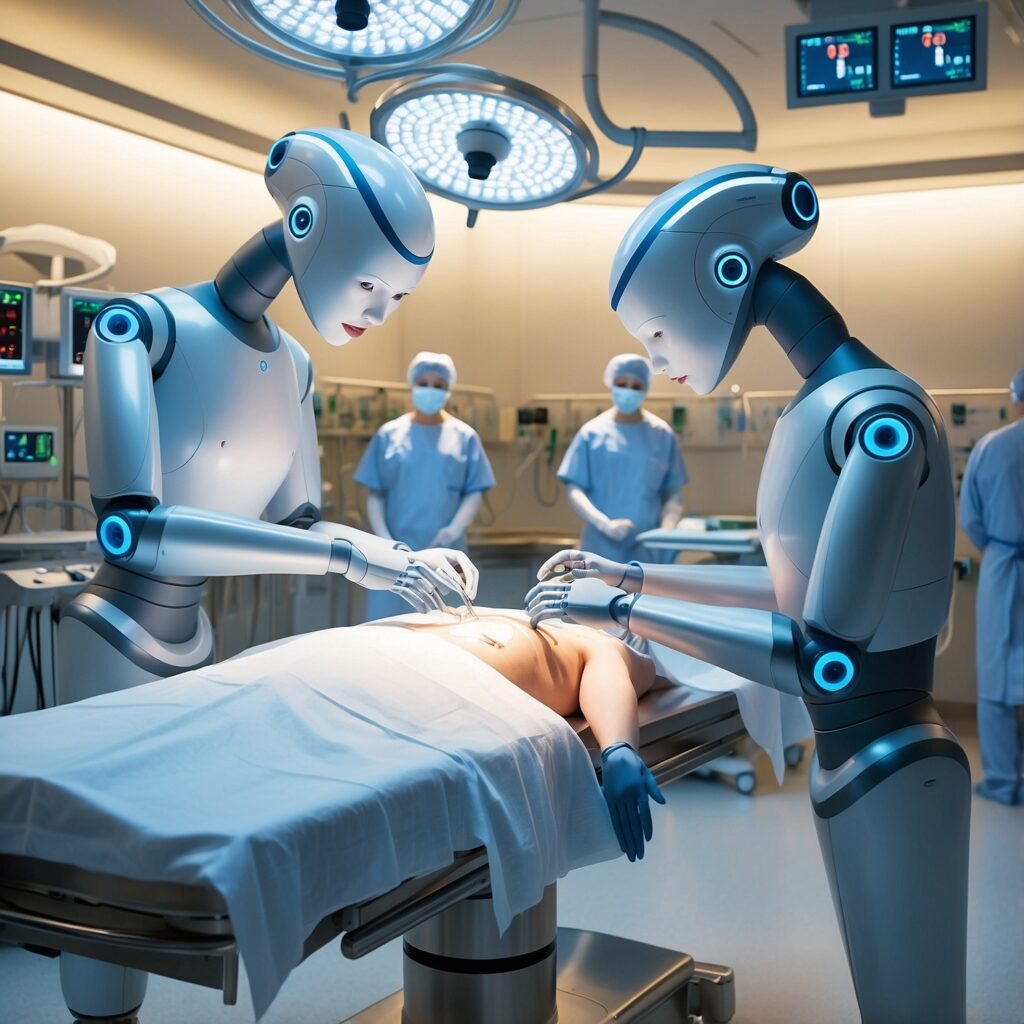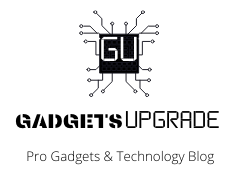The Future Of Work — How AI Is Impacting Different Sectors
Artificial Intelligence (AI) isn’t just a matter of science fiction anymore, it is an essential aspect of our everyday life that drives innovation in all sectors around the world. AI is no doubt altering the way businesses function with automation to decision-making, presenting new opportunities and disruptions in its wake. In this article we are going to take a look at how different sectors will be touch the impact of AI, and why: The Automation Ecosystem Data Intuition Decision by Design
AI In The Workplace « Introduction
Basically, AI is teaching human intelligence to machines or we can say a way of making a computer-controlled robot etc. to think intelligently with the help of machine learning and deep learning? These systems can do tasks that normally such require human intelligence like visual perception, speech recognition, decision-making and language translation. The recent progress on AI technologies and the unstopped raising of data have created a blossoming of AI applications in many industries.
Automation The Next Industrial Revolution
AI can do a lot of work in automating such regular tasks which then opens up human resources to engage with more intricate and creative work. Not only this; the automation scenario is not just limited to manufacturing, it has started ahead and spreads its winds in industries such as healthcare, finance or retail.
Manufacturing
AI managed robots and automated systems are transforming the production line in manufacturing. In some areas, these systems come paired down more efficiently than a human and are much faster so they can carry out tasks at scale in significantly less time for lower cost. As an example, with the help of collaborative robots (cobots), human employees are using these cobots for assistive actions such as in assembly or packaging and even to some extend quality inspection.
Healthcare

AI can help to automate administrative tasks including scheduling appointments and managing patient records in healthcare. The chatbots, driven by AI learnings and data analytics mechanisms help in answering the preliminary questions of a patient instantly thereby cutting down on the work pressure that healthcare professionals carry every day. Medical images and data are analysed and the AI is employed to result in symptoms or signs of a diagnosis with greater accuracy, as one takes time deciding whether he/she needs an operation.
Retail
The retail industry is finding uses for AI in automating inventory management, customer service and personalized marketing. Predictive machine-learning models are able to forecast demand and adjust stock levels, which minimizes the risk of overstocking or not carrying enough inventory. For example, the deployment of chatbots and virtual assistants have facilitated 24/7 customer support — serving customers to answer any questions they might ask or leading them through their shopping journey.
Analysis: This is mainly of the data that we want to explore, understand and provide insights.
The power of AI to rapidly and accurately process massive data sets is changing the way that organizations reach decisions. Cloud companies are able to uncover completely different patterns, trends and insights that were once hidden from view due simply by leveraging the power of machine learning algorithms.
Finance
In finance, AI is employed to examine and predict trends of the market (stock prices), as well as performing fraud detection on financial transactions. Algorithmic trading is the use of AI technology to mimic human interactions in high- volume, low-frequency trades and apply pre-defined rules along real-time market data sets— AI-powered systems have the capability of evaluating transactions in real-time, raising red flags and mitigating financial crimes.
Marketing
That tech, AI and stuff revolutionized marketing by enabling customers experience customization. AI algorithms can then use this customer data to generate personalized campaigns designed on the likelihood of individual customers converting. It helps companies to predict the behaviour of their customers by analysing customer preferences and hence, being able to offer customized services leading in attracting more customers resulting higher levels of satisfaction.
Human Resources
The same kind of thing goes for the human resources field in terms of recruitment and talent management with AI as well. Automated tools can screen resumes, perform the initial interview and show you exactly who are the best fit candidates. Artificial intelligence can be a game changer for HR by allowing leaders to predict turnover rates and skills gaps, enable retention strategies and understand the internal movements of your talent.
Decision-making: Augmented with AI
Artificial intelligence is not just about automating work, it enhances decision-making processes by generating data-drive insights and recommendations. This would crucial, especially within sectors where decisions are very expensive or drive large operational consequences.
Supply Chain Management
While in supply chain management, AI is applied to logistics and saving cost. These AI algorithms can be trained on historical and real-time data to predict demand, optimize routes, manage inventory more efficiently. This is helping in increasing efficiency, reducing the wastage and improving customer satisfaction.
Transportation
AI is powering the transportation industry to improve safety, efficiency and customer experience. Traffic management systems powered by AI can process and interpret live traffic info, enabling them to manage traffic flow effectively and reduce congestion. Self-driving cars, using AI to reduce human error and improve safety.
Energy
AI is also helpful in optimizing power management, generation and distribution either for transport or energy sector industries. But AI can manage energy demand by predicting and controlling it with the help of data from smart grids which otherwise goes wasted just to be used for some house or office. AI can also be applied to the maintenance of energy infrastructure, predicting failures and organising preventive intervention.
Ethical Considerations & Challenges
The advantages of AI are numerous, but it is particularly important to share with society the ethical implications and challenges that arise from adopting this type of technology.
Job Displacement
How automation will affect the job market one of those concerns. It is important for any task, its efficiency can be agile automated with AI but the advantages it brings to share fairly. A part of this may be retraining and upskilling workers for new roles that demand human creativity, empathy, critical thinking.
Bias and Fairness
Computer and artificial intelligence systems are only as good at the information with which they were trained. The AI system will replicate and possibly amplify those biases if the data is itself biased. One of the pressing challenges going forward is both how to make AI algorithms fairer and more transparent, as well was that it will require sustained attention and cooperation from technologists with policymakers and ethicists.
Privacy and Security
Big data systems are burdened with collecting and analyzing large volumes of data, leading to issues around privacy and security. For companies this means that strong security measures to prevent sensitive data flows are applying and checks of a compliance with the rules can be carried out.
Final Verdict
AI is Transforming Industries AI has been driving a deep transformation in industries, automating mundane tasks and improving decision-making. Our work environment will continue to be more closely associated with AI offering exciting new prospects for advancement and challenge. But we must not forget the moral dilemmas and obstacles that need to be addressed before AI implementations. And in the ways we use A.I For it to be a tool that encapsulates all of those values, but instead how can then hopefully better optimize itself moving forward as well, for an AI with optimal efficiency and power means less waste on the way new futures are created for us now.
And into the future, businesses, policymakers and people alike will need to unite in order to make sure that AI is based on inclusive and appropriate expansion. Among other tasks, this would require investment in education and training for the jobs of tomorrow; development of ethical guidelines around AI use between now (when they will first start to make an impact) and lots-o-years from here when some think algorithms might potentially rule our lives wholly; as well as creating a culture where innovation can happen without neglecting human welfare.
When we talk about the future of work, AI tops carriers all around. When we commit to AI while tackling it head on, more of human industry and society can flourish.
By
